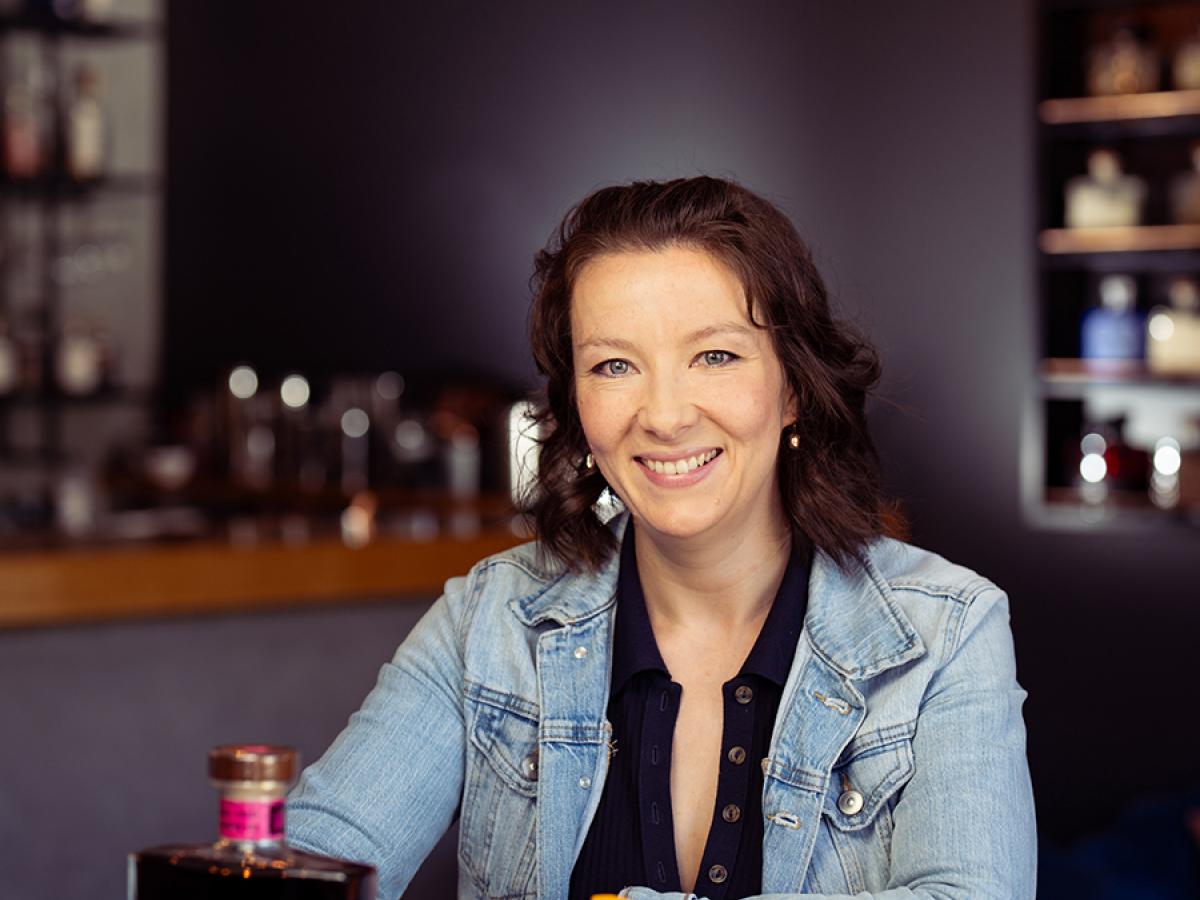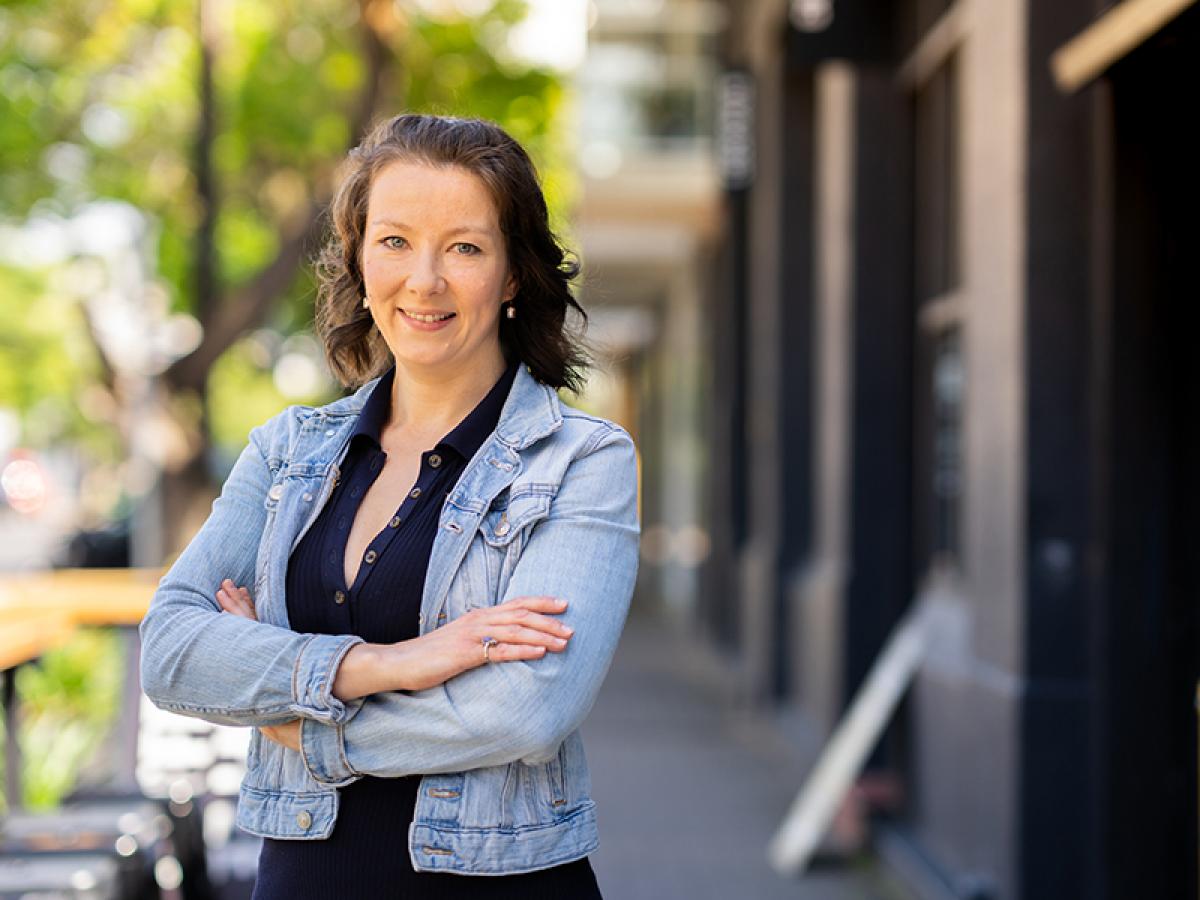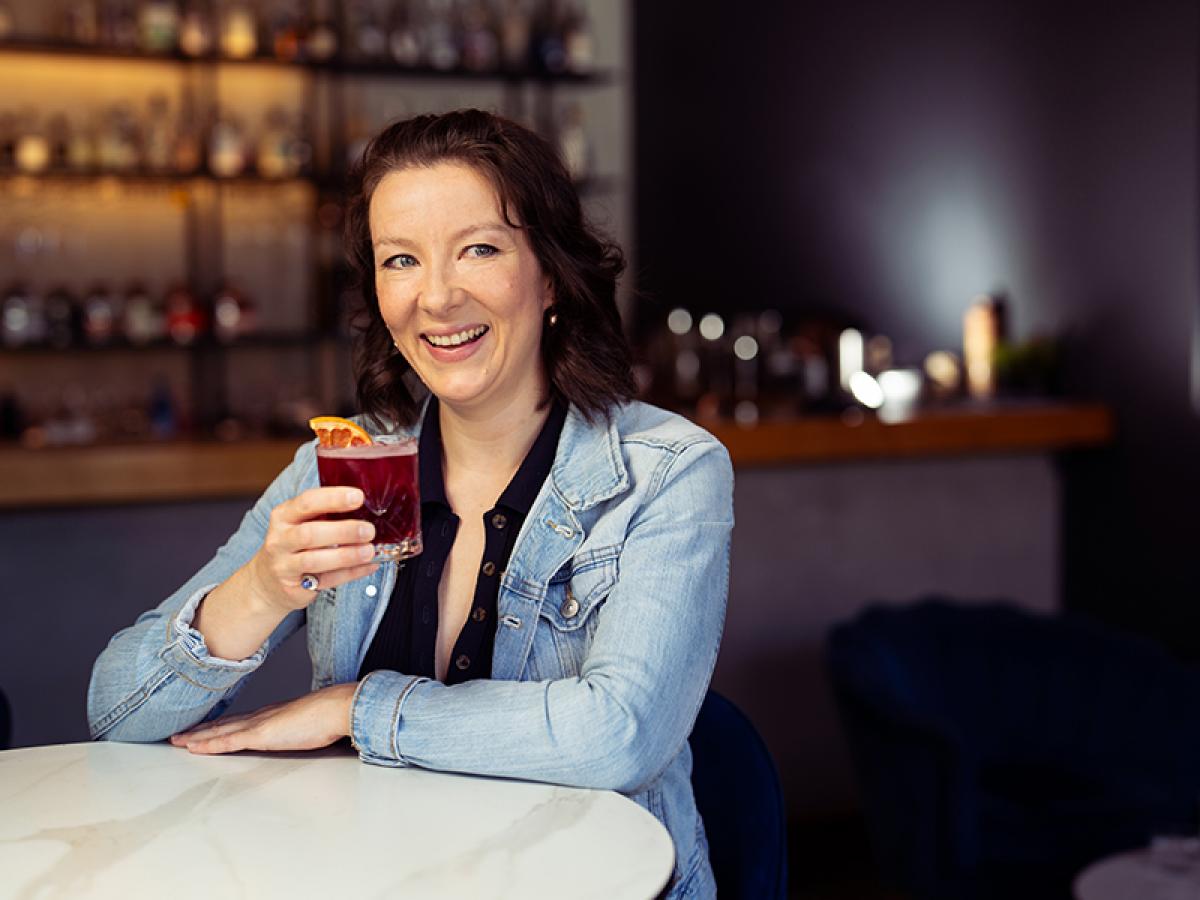Connected Conversations | Laura Eadie
In geographical terms, Dr Laura Eadie has come full circle. After undertaking a Bachelor of Science at the University of Adelaide, she moved to Memphis to pursue a Fulbright fellowship looking at mouse models of leukaemia before returning to Adelaide, where she now leads the T-cell Acute Lymphoblastic Leukaemia (T-ALL) group at SAHMRI.
A passionate researcher—and recipient of a 2023 Young Tall Poppy award—Laura is driven by the thrill of discovery and the potential for her work to change lives. Becoming a mother to her two-year-old daughter has brought fresh challenges to the work/life balance but has also solidified her commitment to improving the survival outcomes for children with leukaemia.

Please tell us your name and a little bit about yourself.
I’m Dr Laura Eadie and I’m the T-cell Acute Lymphoblastic Leukaemia (T-ALL) group leader at SAHMRI and an affiliate senior lecturer. I’m a Cancer Council SA Beat Cancer Project research fellow and a 2023 Young Tall Poppy. My team and I create humanised mouse avatars from individual patient’s leukaemic cells to use in pre-clinical drug trials. Combined with genomic sequencing to identify a patient’s leukaemia-causing mutations, these models allow us to discover more effective therapeutic options targeted to each individual patient’s leukaemia. My long-term research goal is to provide clinicians with a suite of new and re-purposed drugs, which will be able to effectively treat the different genetic lesions associated with T-ALL to improve patients’ survival.
What was your first area of study and what drew you to this space?
In high school I loved science and continued my studies at the University of Adelaide, undertaking a Bachelor of Science. I have always been passionate about turning laboratory discoveries into impact for patients so I joined a translational research laboratory as a resarch assistant before undertaking my PhD. I like to know that the discoveries I make in the lab are going to improve patient care and survival.
What has been your journey to get where you are today?
I’ve always known that the academic research pathway was the career for me, the thrill of being the first person in the world to discover something is incredible and knowing that my discoveries are changing lives gives me deep satisfaction. The journey to get to where I am today has not been without its challenges though. As those in the sector would know, continuity of research funding is quite difficult, especially at my career stage. Being a part-time working mother has made it even more challenging. Trying to excel professionally while remaining devoted to your family is a seemingly impossible task; something you cannot fathom prior to living it. I think I’m finally starting to get the hang of it though!

What are you working on now? What excites you the most about your research… and what do you hope to achieve?
T-ALL patients are all treated with high-dose toxic chemotherapy. While these treatment regimens are effective for most, many experience long-term side effects and for those patients who do not respond the outlook is dire. Over the next few years, I expect my research will identify new and repurposed FDA-approved drugs targeted to a patient’s specific leukaemia. My work will provide clinicians with an arsenal of alternative treatment options and hope for patients who have relapsed.
What do you love most about working at the University of Adelaide?
I love the fact that my job is so varied. From supervising my students and giving undergraduate lectures to designing, carrying out and analysing experiments to writing manuscripts, grant applications and conference abstracts. No two weeks are the same!
What are some of the exciting developments or opportunities happening globally in your area of research?
Despite recent progress in identifying the genomic drivers of ALL, prognosis is still very poor for patients who relapse. Increasingly, single-cell sequencing approaches are being used to to explore the molecular heterogeneity driving pathogenesis, progression, and therapeutic responsiveness as well as the underlying biology of ALL. Single-cell studies have allowed a deeper examination of the ALL cell of origin across different molecular ALL subtypes. The wealth of data generated from these analyses should lead to identification of the early leukaemic clones that are responsible for disease relapse which will hopefully lead to a cure.
What’s something that people are surprised to find out about you?
In my spare time I like to take part in trail runs with Trail Running SA. While challenging, trail running allows me to see SA’s wonderful National Parks.
What is one of the best decisions you have ever made?
I undertook a Fulbright fellowship in Memphis, Tennessee in 2016-2017. I moved over there by myself and it was a huge challenge living on the other side of the world away from my support network. The Memphis lifestyle was also a massive culture shock and it was incredibly lonely at times. However, undertaking an international appointment was necessary to progress my career and the impact of this experience has been profound and long-lasting. I thought that I was going over there to learn cutting edge mouse models of leukaemia (which I did) but I actually learned more about myself than I thought possible. All the challenges I faced made me a more self-sufficient, independent researcher. They taught me I am stronger than I previously imagined. They have solidified the perseverance and drive to succeed required if one is to become a career researcher. They have ultimately made me a more empathetic, stronger leader.

What is your favourite thing about living in Adelaide?
I think the Adelaide food scene is so underrated. We are spoilt for choice when it comes to eating out here. I’m also a big fan of the gin scene and my partner and I have a pretty decent gin bar, mostly comprising of South Australian gins. I especially love Prohibition Liquor, they always have a new and delicious creation to try … we’ve got twelve of their gins in our collection!
What kind of difference would you like to make in the world?
Acute Lymphoblastic Leukaemia is one of the most prevalent childhood cancers and I can only imagine how harrowing it must be for parents when their child is diagnosed and undergoing treatment. Being a first time mother to my two-year-old daughter has solidified my commitment to improve survival outcomes for children with ALL.
What do you do on your commute to/from work?
I ride my bike to work along the Torrens, it’s such a lovely way to start and end the work day and allows me to get a bit of ‘me’ time.
Follow Laura on X: @dr_mchoot
